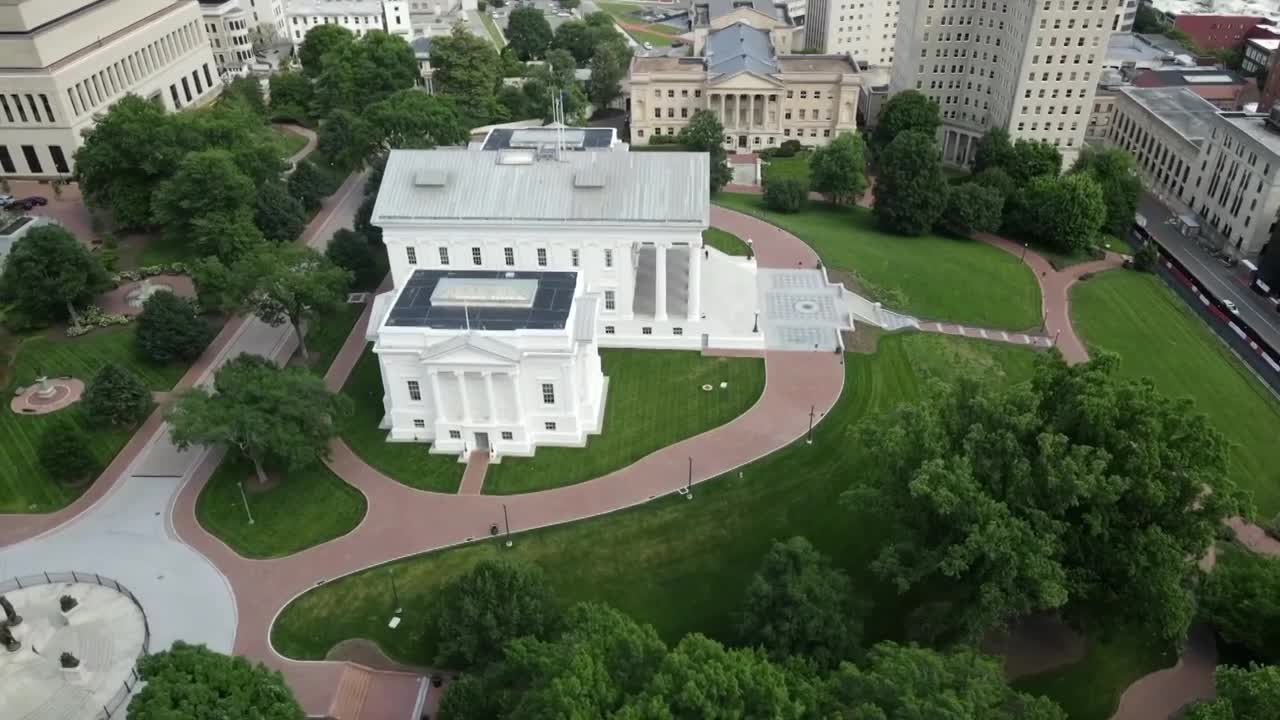RICHMOND, Va. — Virginia state lawmakers will return to Richmond Monday, joining a growing nationwide battle over the redrawing of Congressional maps ahead of the 2026 midterms.
It began earlier this year when President Donald Trump called on Republican-controlled states to redraw their maps and give Republicans a better chance at maintaining or growing their three-seat majority in the House of Representatives.
Texas, Missouri and North Carolina already have approved new congressional maps and even more states are considering.

National News
North Carolina lawmakers approve new congressional map aimed at adding GOP seat
Democratic-led states, including California, have begun taking (or discussing the possibility) similar actions in response.
Virginia Tech Associate Professor of Political Science Nicholas Goedert studies gerrymandering and has written several papers on the subject and the book Ground War: Courts, Commissions, and the Fight Over Partisan Gerrymandering and said he believes this represents a step backward in fair electoral processes.
"This is in reaction to Republicans doing this sort of blatant partisan gerrymandering, starting with Texas. But also, we've seen it in several other states," Goedert explained. "So it is understandable why many Democrats would feel like they need to retaliate."
A letter from Virginia House Speaker Don Scott to lawmakers does not specify why lawmakers are returning to Richmond. However, a spokesperson for the Democratic Congressional Campaign Committee said it's "to convene and preserve the right to consider a new map in 2026," calling it critical for fair representation.
Virginia Republicans strongly oppose the move.
"It's nuts and it's a desperate political ploy and I think it is unconstitutional," Gov. Glenn Youngkin said.
WATCH: Newsom signs ‘Election Rigging Response Act’ in retaliation to Texas moves
The redistricting process in Virginia differs from many other states.
While maps in other states are drawn by the party in power, 66% of Virginia voters approved a constitutional amendment in 2020 creating a bipartisan redistricting commission to draw the maps, with the State Supreme Court if they could not reach a consensus. That is what happened and the court drew Virginia's current maps which has resulted in six Democrats and five Republicans representing the state in Congress.
"Virginians voted overwhelmingly for it," Youngkin explained. "Why don't we let the voice of the people be the voice of the people."
"I do think that, at least in the abstract, that a large majority of voters of various different ideologies support a more independent process for redistricting," said Goedert. "And Virginia, while their process is imperfect, did definitely move in that direction, in a positive direction in the most recent redistricting cycle and this would represent a move backward."

But in order to redraw the current maps, it would another constitutional amendment to change the current rules.
Goedert said under Virginia law, the requires lawmakers to approve the change in two separate legislative session separated by an election of the House of Delegates. The change would then go to voters in the next election.
The speculation is lawmakers are trying to get the first passage in this special session (which is a continuation of a 2024 special session that never adjourned) prior to the 2025 elections and for the second time in January's regular 2026 session.
Goedert said Democrats could then call a special election within 90 days of the amendment passing a second time and bring it before voters before the 2026 November midterms.
WATCH: Texas Gov. Abbott says he'll swiftly sign new maps on his desk that will boost GOP in 2026
Republican leadership in the House argue that since early voting for this year's election has already begun, it is too late to consider this the election between two required sessions.
Goedert says his initial impression is that the timing could be legally acceptable, though he's unaware of any precedent for this situation.
The political scientist also notes uncertainty about not only voter support for a change, but enough Democratic support to even get the question before voters.
"I think it is an unanswered question as to whether a majority of Democrats would support this. The Democratic majority in both houses of the Virginia state house is extremely narrow. They can't really afford to win to lose any votes from among Democrats," said Goedert. "And, I think, unlike in California, where there is a large Democratic majority in the electorate and Democrats routinely win elections by 20 or 30 points, I do think that the Democratic majority in the electorate in Virginia is narrow enough that is by no means guaranteed that a referendum would succeed. So, I think this is very risky by the Democrats."
But should all of that come together and voters give Democrats the power to redraw redistricts, Goedert sees two possibilities.
"I think they they could fairly easily draw a map that would have eight relatively safe Democratic seats and only three Republican seats," said Goedert. "Under some simulations that I have done, Democrats could draw a map that would not be unnecessarily uncompact — would still have reasonably compact districts — but could have nine seats leaning towards the Democrats and only two safely Republican seats."
CBS 6 is committed to sharing community voices on this important topic. Email your thoughts to the CBS 6 Newsroom.
📲: CONNECT WITH US
Blue Sky | Facebook | Instagram | X | Threads | TikTok | YouTube
This story was initially reported by a journalist and has been converted to this platform with the assistance of AI. Our editorial team verifies all reporting on all platforms for fairness and accuracy. To learn more about how we use AI in our newsroom, click here.









